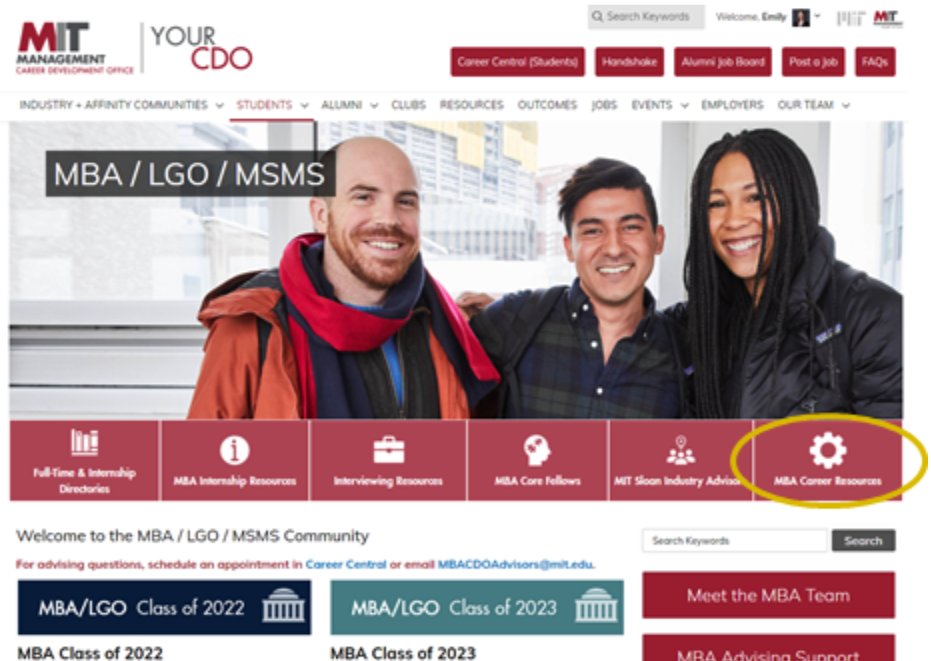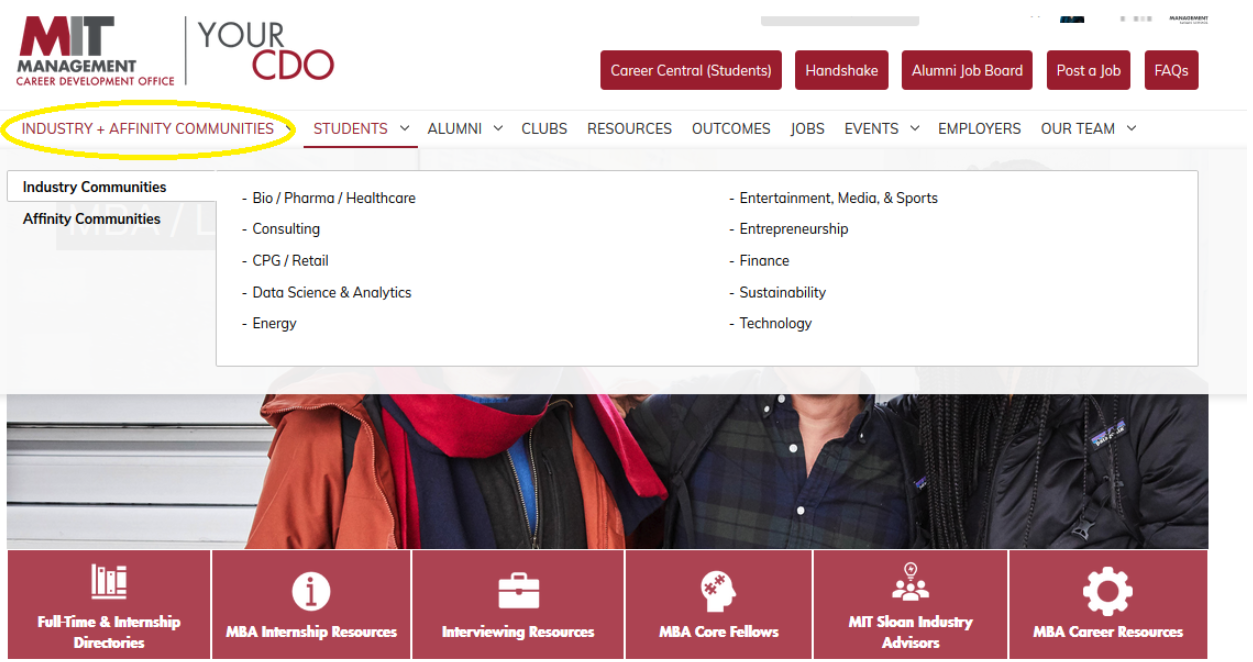As Career Advisors, we love getting to know students through advising appointments, and the coaching experience can be pivotal in helping students achieve their career goals. Here are 6 suggestions to help you get the most out of your appointments (which are booked directly in Career Central). Getting the most out of advising largely comes down to 1) leveraging resources as much as you can first and 2) driving a clear agenda.
1) Before advising: explore resources on Your CDO
Nearly all of the Career Development Office’s (CDO’s) resources to help you with different aspects of the recruiting process are found on Your CDO. Exploring these resources first means you don’t have to wait for an advising appointment to find what you need, and it will allow you to use the time with your Advisor for support needed after leveraging these resources.
For example, your first question might be, “How can I find contacts besides searching LinkedIn?” After leveraging the various directories, your new question that you can take to an Advisor might be, “This is my networking plan – I’d like feedback on whether this sounds like a good way to move forward.”
You can explore resources on the MBA/LGO homepage:

You can also explore resources by career community, whether affinity or industry:

2) Before advising: go through company notes / recruiting history / contacts in Career Central
If you have nuts-and-bolts questions about a company’s recruitment (e.g. timing), a great way to get some of that info is to explore the company in Career Central. Our Employer Relations & Recruiting team posts updates from companies, which could include what roles they’re hiring for, when, and what the interview process will entail. Recruiting history can show you what roles they’ve hired for in the past, giving an idea of what else might be coming. Contacts will show who at the company you can reach out to for more information.
We have more information for companies with more established recruiting channels at Sloan, so not every company will have the same amount of information available, but it’s definitely worth searching.
3) Before advising: use the signup form to clarify what you want to discuss in the session
You can add comments in the form when signing up in Career Central. This will help you (and the Advisor) be clear about what you want to get out of the time.
Sometimes our heads are a jumble of career confusion, and it’s hard to articulate what we need compared to the tactical questions – that’s ok (we’ve ALL been there). In those cases, you can give us some clues in the signup form, but don’t worry about spelling it all out since we can talk it through with you.
Whatever the case, you don’t have to write a lot in the sign-up form (phew!); just some context about the situation and your questions will be fine.
4) After advising: write down your next steps
We do our best to make sure students walk away from advising sessions with clear action steps to focus on. During or after your session, write down any next steps and plans so you don’t forget and so you can help yourself stay organized and follow up.
5) Outside of advising: keep up with newsletters
Email overwhelm is real. We know. Still, we are biased for you to read ours. 😊
Newsletters are sent on Wednesdays (biweekly for 2nd years). We share updates on upcoming events and workshops, resources, and guidance around various aspects of the job search that aim to answer student FAQs. Wondering where to even begin with your search? Here’s the newsletter for that. Wondering what you should be doing for a highway/dirt road/jungle search? Here’s the newsletter for that. Wondering what tools there are specifically for your functional interests? Yup, there’s a newsletter for that too.
6) Outside of advising: attend Career Core
Career Core classes for first years answer many questions students have, and even those you didn’t know you had. It’s designed to walk you through the entire recruitment process and touches on strategies, resources, advice, and in-class actions to drive your search forward. Attending will help you stay on track and build your job search skills, and then you can use advising sessions for needs that come up as you implement what you learn in class.
To sum it up, all topics can be covered in advising sessions. Sometimes, students don’t really have specific questions and just need some help handling the stress and anxiety of the job search, which is totally ok! That’s part of the process too. We meet you where you are and will help you tackle whatever you bring us. Keep the above in mind to help you get the most out of advising, knowing that we’re here for whenever you get stuck.


